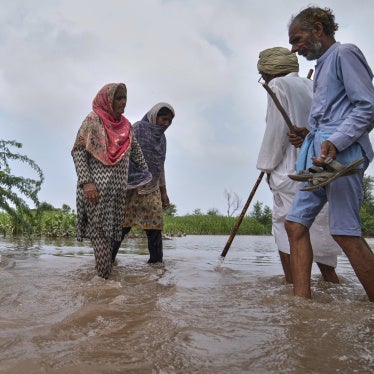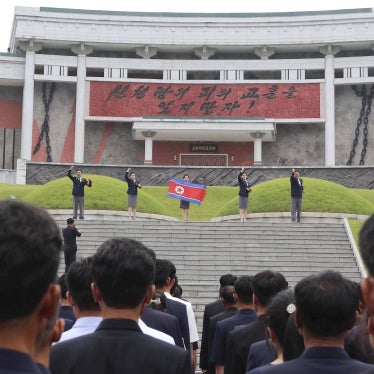Dear Mr. Prime Minister,
We write on the occasion of Chinese President Hu Jintao’s visit to India later this month. We recognize that your administration has many urgent issues to discuss with President Hu and his team. Nevertheless, we urge that you raise China’s grim human rights record in its treatment of Tibetans during all your meetings and public appearances. With the further deterioration of human rights there, we ask that the issue be a priority during your meeting with President Hu Jintao, and that all your public statements reflect your concerns.
You have recently reiterated India’s commitment to human rights and have entered into a partnership with the US to promote democracy. Those commitments, and India’s long history with Tibet, oblige India to do all it can to defend the human rights of Tibetans. For decades, India has demonstrated that commitment by hosting a large community and government-in-exile, including many Tibetans fleeing political, religious, and socioeconomic repression. But the situation inside Tibet is worsening, and your government’s deepening relationship with China offers an unprecedented opportunity to press China for change.
We particularly draw your attention to the recent shooting on the China-Nepal border. On September 30, the Chinese People’s Armed Police (PAP) shot dead a 17-year-old girl named Kelsang Namtso from Nagchu. At least one other Tibetan, 23-year-old Kunsang Namgyal from Kardze, was shot twice and arrested, and is feared dead. The two were part of a group of 73 Tibetans who were attempting to cross the border into Nepal through the 6,000-meter-high Nangpa Pass. Survivors, once they reached New Delhi, said that there was no warning of any kind and that the soldiers were shooting to kill. Witnesses reported seeing Chinese soldiers marching at least 10 children and up to 20 adults, at least one of whom appeared to be injured, down from Nangpa Pass later that day. Forty-three people reached Kathmandu, Nepal, where the United Nations High Commissioner for Refugees (UNHCR) sheltered them at the Tibetan Refugee Transit Centre (TRRC). The whereabouts of 32 members of the party, including 14 children, who did not reach Nepal, is still unclear.
We ask that you urge President Hu to permit an independent investigation into the incident. In addition, the Chinese government should to allow an international agency with expertise in the rights and well-being of children to determine whether any of the 10 children reportedly apprehended by the border guards were separated from their parents against their will and, in accordance with the principle of the best interests of the child, to reunite them with their families.
In addition, we draw your attention to escalating repression in Tibet. Tibetans are increasingly concerned about the consequences for religious, cultural, and socioeconomic freedoms following the July opening of the Lhasa-Qinghai railroad, and by the recent appointment of the smallest number of Tibetans since 1966 to powerful bodies such as the Lhasa City Party Committee. Protests have erupted recently over apparently preferential treatment given in Lhasa to ethnic Chinese university graduates, and Tibetan nomads are systematically being forcibly resettled into urban areas where they cannot compete economically with ethnic Chinese. Efforts to engage in public discussions of such developments have resulted in the abrupt closure of websites. Such developments may, among other consequences, lead to an increasing flow of refugees to India. We hope that India will publicly reaffirm its commitments to support them.
We also ask that all Indian officials reiterate their expectations that China will abide by its commitments as it agreed to when it ratified the International Covenant on Economic, Social and Cultural Rights (ICESCR) in 2001, and signed the International Covenant on Civil and Political Rights (ICCPR) in 1998, and under domestic law, with respect to the treatment of Tibetans.
Finally, we urge you to uphold India’s own protections on free expression and permit peaceful protests of President Hu’s visit. India’s decision to restrict the free speech of activists who have stated their intention to protest peacefully, and the Dharamsala police superintendent’s threat to deport protestors, are shocking encroachments on basic human rights. If India is to be taken seriously as a defender of human rights, these decisions must be reversed immediately and publicly.
India has quietly shown its support for Tibetans’ human rights in the past. It is our hope that a more public demonstration from your government will make an important contribution to securing those rights.
We appreciate your attention to these matters.
Sincerely,
Brad Adams
Executive Director,
Asia Division, Human Rights Watch








